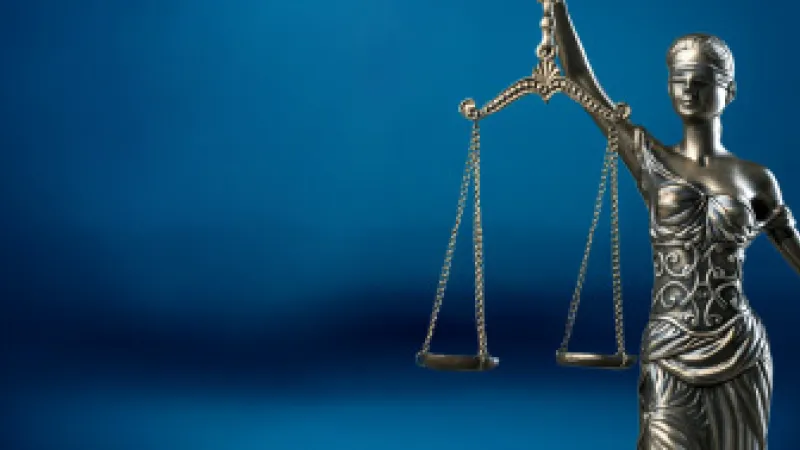Who’s in Charge? Jurisdictional Battles Between Indian Antitrust Regulator (CCI) and Sector Specific Regulator
August 19, 2025
Introduction
Picture a situation where you are the general counsel of a company operating in a highly regulated sector, such as telecom, power, or broadcasting, where compliance with sector-specific regulations is a core part of your business strategy. Despite your company’s robust compliance framework, the sector specific regulator (SSR) may initiate an investigation based on a suspected breach of technical or operational regulations, perhaps triggered by a routine audit, a consumer complaint, or even a tip-off from a competitor. While your company is under the SSR’s scrutiny, a competitor, sensing an opportunity, files an information before the Competition Commission of India (CCI), alleging that your conduct also amounts to an anti-competitive behavior. This dual exposure places your company in a precarious position: the SSR is probing regulatory compliance, while the CCI is evaluating your market conduct for possible competition law violations. The outcomes of both instances of regulatory scrutiny can have a significant bearing on the company’s business.
In this context one has to appreciate that the CCI is a highly empowered authority and wields sweeping powers: it can conduct dawn raids, summon information, seize documents (physical and electronic), and conduct depositions. Thus, investigation by the CCI can be highly intrusive, disruptive and demands significant time and attention of the management.
In such situations, one is faced with the unenviable position of trying to put a quietus to these proceedings (or at least attempt to stay them). Considering the trends from the past cases, parties have typically tried to stay the proceedings before the CCI. However, the CCI generally operates independently, and its jurisdiction is not automatically curtailed by parallel proceedings before the SSR. Thus, a critical question arises: whether higher courts will grant a stay on CCI investigations and if so, under what circumstances? This question hinges on:
(a) What is the legal framework?
(b) Under what conditions, is the jurisdiction of the CCI ousted, and when is it not?
(c) Are there any recent legal developments on this issue?
This article examines and answers these very questions.
What does the Competition Act, 2002 (Competition Act) say?
The Competition Act establishes the CCI as the principal authority for addressing competition issues across all sectors. This is reflected in several key provisions: (a) Section 601 grants the Competition Act overriding effect over any conflicting laws, ensuring the primacy to the CCI in relation to determination of questions of principles of fair competition / market conduct; (b) Section 612 bars civil courts from intervening in matters within the CCI’s jurisdiction; (c) Section 62 clarifies that the Competition Act operates alongside, and not in derogation of, other laws, indicating a framework of coexistence rather than exclusion of the CCI; and (d) Sections 213 and 21A4 provide a consultative mechanism, enabling the CCI and SSRs to make mutual references to resolve jurisdictional overlaps. Collectively, these provisions affirm the CCI’s independent authority to adjudicate anti-competitive agreement or abuse of dominance.
Under what conditions is the jurisdiction of the CCI considered to be ousted, and when is it not?
The following positions have been made clear from the higher/appellate court’s interpretive guidance:
CCI has no jurisdiction
In the Ericsson case5, the Delhi High Court highlighted circumstances where the CCI did not have any jurisdiction, which are: (a) the subject matter of the dispute must be governed by a law that has been enacted after the Competition Act, and is more specific to the issue-at-hand; (b) the later statute must provide comprehensive remedies for the alleged conduct, including remedies for anti-competitive practices; (c) there must be an irreconcilable conflict between the two statutes (i.e., the Competition Act and other law),6 and (d) the later/special statute must expressly or by necessary implication exclude the jurisdiction of CCI.
Sequential jurisdiction (i.e., the SSR or civil court will adjudicate the dispute before the CCI)
If jurisdictional facts, defined as facts that determine whether a body has the legal authority to decide a matter, are unclear or disputed, precedents provide that a sequential jurisdictional approach should be followed, wherein the SSR/civil court adjudicates first, and only then can the CCI proceed with its investigation. This principle has been upheld in the following judgments:
a. Supreme Court of India in Bharti Airtel7 held that, if the dispute involves technical or regulatory issues that are within the exclusive domain of the SSR: then the SSR must first determine jurisdictional facts or resolve technical questions (e.g., compliance with license conditions) and CCI’s jurisdiction is deferred until the SSR has made findings on those issues.
b. Delhi High Court in the JCB Case8, where the allegation before the CCI was that a dominant party (i.e., JCB) had engaged in “vexatious or sham litigation” which evidenced its abusive conduct and prompted an investigation by the CCI. In furtherance of the same, a writ petition was filed by JCB before the Delhi High Court to thwart CCI’s jurisdiction, and the Delhi High Court held that the CCI cannot proceed with its inquiry unless a competent court has first determined that the litigation was indeed vexatious.
Concurrent jurisdiction
If the conditions outlined in Part A (i.e., where the CCI has no jurisdiction) and Part B (i.e., where there is sequential jurisdiction, SSR followed by the CCI) are not present, CCI will have concurrent jurisdiction with the SSR. This position is supported by judgments such as:
a. CCI’s WhatsApp Order9 upheld the concurrent jurisdiction approach stating that: (i) the CCI’s jurisdiction to investigate anti-competitive conduct is independent and concurrent with other authorities even if there is potential overlap; (ii) mere existence of parallel proceedings or involvement of other authorities does not strip CCI of its jurisdiction; (iii) compliance with data protection/privacy legislation does not absolve entities from Competition Act violations; and (iv) no repugnancy exists between competition law and data protection statutes;
b. The Delhi High Court in WhatsApp Judgment10has held that: (i) concurrent proceedings by different authorities within their respective jurisdictions are permissible. Minor overlaps in their inquiries do not necessitate the exclusion of one authority’s jurisdiction by the other; (ii) in the absence of irreconcilable conflict between the jurisdictions, the CCI retains the authority to proceed with investigations under Section 26(1) of the Competition Act; and (iii) Section 62 of the Competition Act expressly provides that its provisions are in addition to, and not in derogation of, any other law, thereby supporting the concurrent jurisdiction doctrine of the CCI;
c. Bombay High Court in Aamir Khan Judgement11 held that the: (i) existence of rights under another statute does not preclude CCI from examining competition law issues; and (ii) CCI is competent to determine its own jurisdiction and can proceed unless there is an express bar in another statute.
Are there any recent legal developments on this issue in 2025?
In 2025, two judgments were passed addressing the jurisdictional issue between the CCI and other authorities. The relevant aspects of these judgments are as follows:
Kerala High Court– Star Asia12
The Kerala High Court held: (a) both the CCI and SSR (in this case Telecom Regulatory Authority of India (TRAI)) are established special statutes in their respective fields, and some overlap of jurisdiction does not oust the jurisdiction of one in favor of the other; (b) if the primary allegation is about abuse of dominant position such as denial of market access, the CCI has jurisdiction to investigate, even in a regulated sector like broadcasting; (c) if the dispute is about non-compliance with sectoral regulations or licensing conditions, TRAI has primary jurisdiction, and CCI’s jurisdiction is triggered only after the sectoral regulator has determined the jurisdictional facts; (d) the CCI is competent to determine its own jurisdiction; and (e) the mere existence of parallel proceedings or some overlap does not mean that the CCI’s jurisdiction is ousted, and both authorities can operate in their respective spheres.
Madras High Court – Google v. Testbook13
The Madras High Court held that: (a) the jurisdiction of the CCI is not automatically ousted merely because a civil suit involves issues that could also be examined under the Competition Act; (b) there is a difference between in rem proceedings before the CCI (which address market-wide abuse of dominance or anti-competitive conduct) and in personam disputes before civil courts (which address contractual or private law issues between parties); (c) if the relief sought is limited to the specific bilateral contract between the parties (e.g., claims of waiver, novation, or unconscionability under contract law), the civil court retains jurisdiction, and such disputes are not barred by Section 61 of the Competition Act; and (d) if the core grievance is about abuse of dominant position or anti-competitive conduct in the relevant market, then the CCI has exclusive jurisdiction, and civil courts cannot adjudicate such claims. Presently, Google has appealed the order of the Madras High Court before the Supreme Court, which has stayed the matter
Conclusion
While one hopes that one does not encounter this nightmarish scenario of having to deal with multiple regulatory proceeding for the same/similar cause of action, the approach outlined in this article aims to offer a roadmap of what battles to pick and how to maneuver the litigation strategy. A forward-looking perspective is essential when navigating the intersection of sectoral regulations and competition law. If the central issue concerns sectoral guidelines or is likely to be decided by a civil court/SSR, parties should consider seeking a stay of CCI proceedings. On the other hand, if a CCI investigation appears imminent, it is prudent to proactively prepare for the investigation. Therefore, a word to the wise would be to weigh the likely risk-to-reward ratio of choosing to litigate jurisdiction of the CCI versus participating in an investigation as both have their merits and demerits. Successfully managing these situations requires an early assessment of the primary allegations and strategic engagement with relevant authorities.
- 1 S.60, of the Competition Act.
- 2 S.61, of the Competition Act.
- 3 S.21, of the Competition Act.
- 4 S.21A, of the Competition Act.
- 5 Telefonaktiebolaget LM Ericsson (Publ) v. CCI. LPA 247/2016, judgment dated 13 Jul 2023 (Ericsson).
- 6 Proceedings against Torrent Power Limited under Section 43A, order dated,14 Jan 2025.
- 7 CCI v. Bharti Airtel Limited, Civil Appeal No. 11843 of 2018, order dated 18 Jul 2018 (Bharti Airtel).
- 8 JCB India Limited v. CCI, W.P.(C) 2244/2014, judgement dated 14th Aug 2024 (JCB Case)
- 9 In Re: Updated Terms of Service and Privacy Policy for WhatsApp users, Suo Motu Case No. 01 of 2021, order dated 18 Nov 2024 (WhatsApp Order)
- 10 Whatsapp v. CCI, LPA 163/2021, judgment dated 25 Aug 2022 (WhatsApp Judgment)
- 11 Aamir Khan Productions Private Limited v.Union of India, WP No. 358 of 2010, 18 Aug 2010 (Aamir Khan Judgement)
- 12 Asianet Star Communications Private Limited v. CCI, WP(C) NO. 29766 OF 2022, judgment dated 28 May 2025. (Star Asia)
- 13 Testbook Edu Solutions Private Limited v. Google India Pvt. Ltd., C.M.P.Nos.11359 & 11360 of 2024, judgement dated 20 Jan 2025 (Google v. Testbook)
You may also like








